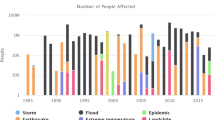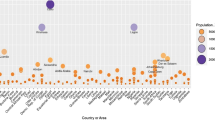Abstract
Climate change is at the forefront of local government policy in south Florida. Impacts to archaeological and historical sites, however, are often relegated as a casualty of development as local leaders make decisions about where to place critical infrastructure and develop areas in a sustainable way. While all cultural resources have historical significance, not all levels of significance are equal. Accordingly, counties and other government entities will have to make difficult decisions as they evaluate the need for seawalls and other necessary infrastructure measures that may impact cultural resources. Case studies from Palm Beach, Collier, and Miami-Dade counties describe two prioritization strategies within two different regional compact frameworks. These frameworks each have specific strengths and were devised specifically for resources in their compact areas. This article explores prioritization of threatened archaeological sites, reviews the South Florida Regional Climate Change Compact and other local jurisdictional alliances’ participation in the process, and, finally, considers how prioritization can inform academic research as well as infrastructural improvements.
Resumen
El cambio climático está a la vanguardia de la política del gobierno local en el sur de Florida. Sin embargo, los impactos en los sitios arqueológicos e históricos a menudo se relegan como una víctima del desarrollo, ya que los líderes locales toman decisiones sobre la ubicación de la infraestructura crítica y el desarrollo de áreas de manera sostenible. Si bien todos los recursos culturales tienen un significado histórico, no todos los niveles de significado son iguales. En consecuencia, los condados y otras entidades gubernamentales tendrán que tomar decisiones difíciles al evaluar la necesidad de diques y otras medidas de infraestructura necesarias que pueden afectar los recursos culturales. Los estudios de casos de los condados de Palm Beach, Collier y Miami-Dade describen dos estrategias de priorización dentro de dos marcos compactos regionales diferentes. Cada uno de estos marcos tiene fortalezas específicas y se diseñaron específicamente para los recursos en sus áreas compactas. En este artículo se explora la priorización de sitios arqueológicos amenazados, se revisa el Pacto de Cambio Climático Regional del Sur de la Florida y la participación de otras alianzas jurisdiccionales locales en el proceso y, finalmente, se considera la manera en que la priorización puede informar la investigación académica, así como las mejoras de infraestructura.
Résumé
Le changement climatique occupe une place de premier plan dans la politique du gouvernement local en Floride du Sud. Toutefois, les impacts sur les sites archéologiques et historiques sont souvent relégués à titre de dommage accessoire au développement lorsque les leaders locaux décident des emplacements d'infrastructures essentielles et du développement de zones de manière durable. Si toutes les ressources culturelles ont une pertinence historique, tous les niveaux de pertinence ne sont pas équivalents. Par conséquent, les comtés ainsi que les autres entités gouvernementales devront prendre des décisions difficiles lorsqu'ils évalueront le besoin de digues et d'autres mesures d'infrastructure susceptibles d'avoir un impact sur les ressources culturelles. Les études de cas issues des comtés de Palm Beach, Collier et Miami-Dade décrivent deux stratégies de priorisation au sein de deux cadres contractuels régionaux différents. Ces cadres présentent chacun des atouts spécifiques et ils ont été conçus expressément pour les ressources dans leurs zones contractuelles. Cet article est une étude de la priorisation de sites archéologiques menacés, il examine le South Florida Regional Climate Change Compact (Pacte régional de la Floride du Sud sur le changement climatique) et la participation d'autres alliances juridictionnelles locales à ce processus. Enfin, il envisage comment la priorisation peut informer la recherche universitaire ainsi que les améliorations des infrastructures.




Similar content being viewed by others
Notes
For the bill’s text, see < https://www.flsenate.gov/Session/Bill/2021/1954/BillText/er/HTML > .
References
AECOM 2020 City of Naples Climate Change Vulnerability Assessment. City of Naples, Naples, FL. City of Naples, Florida, Natural Resources, Resiliency and Sustainability, Supporting Documents <https://www.naplesgov.com/naturalresources/page/resiliency-and-sustainability>. Accessed 4 March 2023.
Ayers-Rigsby, Sara, and Jeff Ransom [2024] Vulnerability Assessment for Archaeological Sites of Miami Dade County. Manuscript, Miami Dade Historic Preservation Office, Miami, FL.
Davenport, Chris, and Sara Ayers-Rigsby 2021 Inundation Models for Palm Beach County: Assessing Future Impacts to Cultural Resources. Manuscript, Palm Beach County Historic Resources Review Board, Palm Beach, FL.
East Central Florida Regional Resilience Collaborative 2019 The East Central Florida Regional Resilience Collaborative Memorandum of Understanding. East Central Florida Regional Resilience Collaborative <https://889165ce-2020-4ef4-8e1b-6d42ae03ec9c.filesusr.com/ugd/4c4fbd_1adc20464abc4362a0bb1224aaa95fab.pdf>. Accessed 4 March 2023.
Field, Christopher B., Vicente R. Barros, David Jon Dokken, Katharine J. Mach, Michael D. Mastrandrea, T. Eren Bilir, Monalisa Chatterjee, Kristie L. Ebi, Yuka Otsuki Estrada, Robert C. Genova, Betelhem Girma, Eric S. Kissel, Andrew N. Levy, Sandy MacCracken, Patricia R. Mastrandrea, and Leslie L. White (editors) 2014 Climate Change 2014: Impacts, Adaptation, and Vulnerability. Part A: Global and Sectoral Aspects. Cambridge University Press, New York, NY. IPCC <https://www.ipcc.ch/site/assets/uploads/2018/02/WGIIAR5-PartA_FINAL.pdf>. Accessed 23 February 2023.
Florida Department of Environmental Protection 2018 Florida Adaptation Planning Guidebook. Florida Department of Environmental Protection <https://floridadep.gov/sites/default/files/AdaptationPlanningGuidebook.pdf>. Accessed 4 March 2023.
Florida Division of Historic Resources 2004 Archaeological Stabilization Guide: Case Studies in Protecting Archaeological Sites. Florida Department of State, Tallahassee.
Haney, Jennifer M., Matthew Veres, Karen J. Walker, William H. Marquardt, and Lee A. Newsom. 2016 Calusa Island, Florida: Monitoring and Preliminary Archaeological Testing at an Archaic Shell Midden. Poster presented at the 73rd Southeastern Archaeological Conference, Athens, GA.
Kangas, Rachael, Sara Ayers-Rigsby, Michael Savarese, Austin Bell, Steve Bertone, Alison Elgart, William Locascio, Victoria Menchaca, and William Stanton. 2021 Collier County Vulnerability Assessment: Using the ACUNE Decision Support Tool. Manuscript, Collier County, Naples, FL.
Lecher, Alanna L., and April Watson 2021 Danger from Beneath: Groundwater-Sea-Level Interactions and Implications for Coastal Archaeological Sites in the Southeast US. Southeastern Archaeology 40(1):20–32.
Miller, Sarah E., and Emily Jane Murray 2018 Heritage Monitoring Scouts: Engaging the Public to Monitor Sites at Risk Across Florida. Conservation and Management of Archaeological Sites 20(4):234–260.
Nagarajan, Sudhagar, Satarupa Khamaru, and Peter De Witt 2019 UAS Based 3D Shoreline Change Detection of Jupiter Inlet Lighthouse ONA after Hurricane Irma. International Journal of Remote Sensing 40(24):9140–9158.
Pezzeminti, Grace 2019 Historic Site Vulnerability Assessment, Miami-Dade County Office of Historic Preservation. Manuscript, Miami-Dade County Office of Historic Preservation, Miami, FL.
Rockman, Marcy, Marissa Morgan, Sonya Ziaja, George Hambrecht, and Alison Meadow 2016 Cultural Resources Climate Change Strategy. Cultural Resources, Partnerships, and Science and Climate Change Response Program, National Park Service, Washington, DC.
Sheng, Peter A. 2017 Report on a Cooperative Agreement with NOAA NCCOS Started on June 1st, 2017: An Overview of the Project. Board of Collier County Commissioners Presentation. Collier County, Naples, FL.
Southeast Florida Regional Climate Change Compact (SFRCCC) 2012 A Region Responds to a Changing Climate: Southeast Florida Regional Climate Change Compact Counties Regional Climate Action Plan. Southeast Florida Regional Climate Change Compact <https://www.esf.edu/glrc/library/documents/SouthEastFloridaRegionalClimateActionPlan_2012.pdf>. Accessed 31 December 2021.
Southeast Florida Regional Climate Change Compact (SFRCCC) 2017 Regional Climate Action Plan 2.0. Southeast Florida Regional Climate Change Compact <https://southeastfloridaclimatecompact.org/recommendations/>. Accessed 30 December 2021.
Southeast Florida Regional Climate Change Compact (SFRCCC) 2019 Unified Sea Level Rise Projection Southeast Florida. 2019 Update. Southeast Florida Regional Climate Change Compact’s Sea Level Rise Ad Hoc Work Group, Unified Sea Level Rise Projections <https://southeastfloridaclimatecompact.org/unified-sea-level-rise-projections>. Accessed 4 March 2023.
Southwest Florida Regional Resiliency Compact (SWFRRC) 2020 Southwest Florida Regional Resiliency Compact Memorandum of Understanding for Review and Ratification. Growing Climate Solutions, Path to Positive, Southwest Florida, Documents Library <https://growingclimatesolutions.org/wp-content/uploads/2021/01/2-SWFL-Compact-Draft-MOU-062320.pdf>. Accessed 4 March 2023.
Sweet, William, Joseph Park, John Marra, Chris Zervas, and Stephen Gil 2014 Sea Level Rise and Nuisance Flood Frequency Changes around the United States. Technical Report NOS CO-OPS 073. National Oceanic and Atmospheric Administration, Department of Commerce, Silver Spring, MD. NOAA: Tides & Currents <https://tidesandcurrents.noaa.gov/publications/NOAA_Technical_Report_NOS_COOPS_073.pdf>. Accessed 23 March 2023.
Tampa Bay Regional Resilience Coalition 2021 Tampa Bay Regional Resilience Coalition Climate Action Plan. Manuscript, Tampa Bay Regional Resilience Coalition <https://www.tbrpc.org/wp-content/uploads/2021/12/RegionalResiliencyActionPlanDraft12092021.pdf>. Accessed 4 March 2023.
Wright, Jeneva 2016 Maritime Archaeology and Climate Change: An Invitation. Journal of Maritime Archaeology 11(3):255–270.
Acknowledgments:
The authors wish to thank Chris Davenport, Dr. Jake Leech, Dr. Peter Sheng, Matt DeFelice, Sarah Cody, Malachi Fenn, Dr. Cliff Brown, Austin Bell, Steve Bertone, Jeff Carter, Dr. Alison Elgart, Dr. Bill Locascio, Victoria Menchaca, William Stanton, Craig Woodward, Vladimir Paramygin, Chip Birdsong, FPAN, all members of the ACUNE interest working groups, the Collier County NAACP, the Coalition of Immokalee Workers, and the Seminole Tribe of Florida. Funding to develop ACUNE was provided through a NOAA grant to Drs. Sheng and Savarese.
Author information
Authors and Affiliations
Corresponding author
Ethics declarations
Conflict of Interest Statement
On behalf of all authors, the corresponding author states that there is no conflict of interest.
Additional information
Publisher's Note
Springer Nature remains neutral with regard to jurisdictional claims in published maps and institutional affiliations.
Rights and permissions
Springer Nature or its licensor (e.g. a society or other partner) holds exclusive rights to this article under a publishing agreement with the author(s) or other rightsholder(s); author self-archiving of the accepted manuscript version of this article is solely governed by the terms of such publishing agreement and applicable law.
About this article
Cite this article
Ayers-Rigsby, S., Kangas, R., Savarese, M. et al. Act Local: Climate-Change Policy at the County Level in South Florida. Hist Arch 57, 619–633 (2023). https://doi.org/10.1007/s41636-023-00418-y
Accepted:
Published:
Issue Date:
DOI: https://doi.org/10.1007/s41636-023-00418-y




